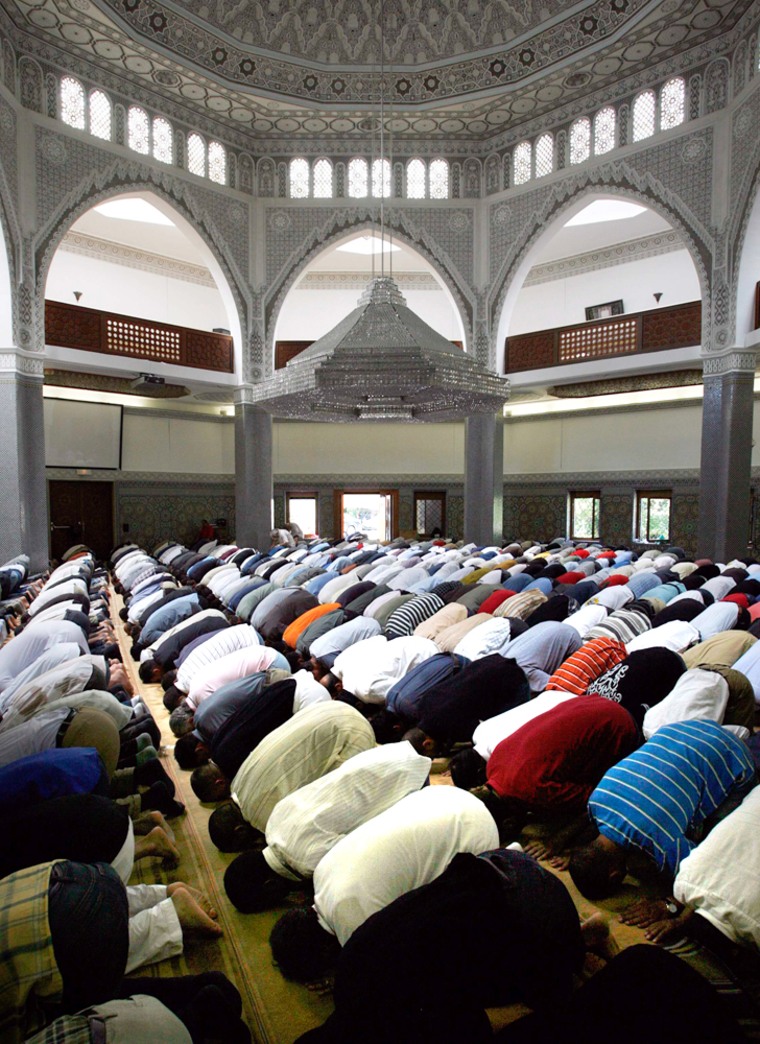Switzerland opened its doors another inch Friday to workers from the rest of Europe by dropping quotas it had maintained for decades on the number of people allowed to seek employment in the country each year.
Starting in June, more than 400 million citizens of France, Germany, Italy and other wealthy European countries will be able to move to Switzerland, an Alpine republic of 7.5 million people that is not part of the 27-nation European Union.
While economists say foreign workers have benefited the country, many Swiss fear that a mass influx of migrants will put a strain on the country's generous social welfare system.
"The real test for an open Switzerland at the heart of Europe will come if the economy slows," one commentator recently wrote in the Zurich-based weekly SonntagsZeitung.
The new rules replacing an annual limit of 15,000 permanent work permits apply to citizens of EU members before the bloc expanded in May 1, 2004.
People from Liechtenstein, Norway, Iceland and two new EU members — Cyprus and Malta — also will benefit from the change, which removes some of the last hurdles for Europeans hoping to benefit from an economic boom that has created thousands of new jobs in Switzerland in recent years.
Quotas still for ex-Soviet bloc
However, citizens from the 10 former communist nations of eastern Europe that have since joined the EU will remain subject to a quota system until at least 2011.
Switzerland's quality of life is among the highest in the world, making it one of the few places where European professionals count as economic migrants.
Previous loosening of immigration rules contributed to the Swiss economy's upswing, with skilled labor meeting a demand that the homegrown work force alone has been unable to fill, according to a study released Thursday by the Economics Ministry.
Switzerland's jobless rate stands at 3.3 percent — less than half that of most of its European neighbors.
Economists said immigration also spurred consumer spending and raised the GDP, which has been growing at a healthy 2.5 percent for the past three years. That figure easily surpassed growth in its much larger neighbors France and Italy.
But in a country that clings steadfastly to the multitude of traditions in its small, tight-knit mountain communities, and where neutrality is almost a national religion, a latent fear of foreigners remains.
Most of the recent arrivals have come from Germany, which thanks to a common language and a surplus of skilled workers offers a vast pool of talent that Switzerland's booming industry badly needs.
But along with IT specialists, construction workers and engineers have come managers, doctors, teachers and even priests, prompting Switzerland's biggest-selling daily Blick to warn its readers — only slightly tongue-in-cheek — to be nice to their bosses or risk being replaced by Germans.
20 percent already foreign
The number of foreigners in Switzerland has increased by 150,000 to more than 1.5 million — or 20 percent of the population — since the start of the millennium.
Portuguese and French citizens have also been taking advantage of eased restrictions that were phased in gradually ever since Bern and Brussels negotiated a series of bilateral agreements in the late 1990s.
In addition, hundreds of thousands of EU residents already commute across the border into Switzerland every day to work in Basel, the Lake Geneva region and the Italian-speaking canton (state) of Ticino.
Economists say so far, there are no grounds to believe that foreigners are taking away Swiss jobs. But trade unions are concerned about wage-dumping, and warn that a sudden rise in unemployment could occur if the Swiss economy suffers from a global downturn.
Nationalist politicians also have capitalized on fears that Switzerland's generous welfare system is being exploited, and that Swiss values and culture are being eroded.
But Swiss proponents of closer integration with European neighbors contend that liberalization has substituted highly trained workers from Europe for lower-skilled migrants from elsewhere. Swiss citizens, they say, also benefit by being able to live and work throughout the bloc as a result of the agreements.
Voters could have the last word by challenging the law through a national referendum, called regularly as part of the country's system of direct democracy. In an attempt to keep the voters onside, the government has negotiated what it calls a "safety valve" clause allowing it to reintroduce quotas for EU citizens.
"We're going to have to wait a year and see whether the quotas need to be reinstated or not," Justice Minister Christoph Blocher, the leading figure in the right-wing Swiss People's Party, told SonntagsZeitung.
